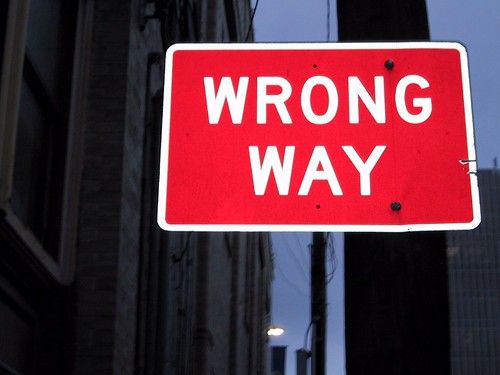Young kids know dreams implicitly. I have spoken to so many social workers that consider this fact a hindrance to determining the appropriateness of a child's home environment because it's hard for kids to articulate reality when they are young. On the contrary, I think it's a blessing. If kids who grow up in environments that place them at risk had to also be vividly aware of this fact, it would be overwhelming.
I remember a therapist asking me a question once during a family counseling session when I was about 7 years old, and all hell was breaking loose in my home... "Sean, what is your biggest problem at home- the problem you would like to change if it were possible?" My answer was that I wished that the clothes I wanted to wear on any particular day were clean; because they weren't always. Amidst the violence, battery and alcoholism that was prevalent in my home during that time, this was a peculiar response, I must say. I can only guess that at the tender age of seven, it just wasn't possible for me to perceive anything more serious than that particular problem from my child's perspective... even though some really bad things were happening. Perhaps I was dreaming, (and for a child I daresay, that just means living,) in a world of my creation; a world where bad things didn't happen and only good things were justified.
As a counselor in a middle school, and at various times in my teaching experience when I have encountered kids who were really down and out, one of my more effective strategies was to pull out their cumulative file and show them their school pictures from their first years in school. I have yet to look at one that didn't represent hope and happiness in the bright face and glowing smile of each child. This could be called a re-framing strategy that I consider to be a version of the crystal ball technique. The questions that accompany this strategy attempt to revisit the state of mind of these kids when the picture was taken seeking understanding about why things have changed. Questions like, "why were you so happy back then?" and "if you could be as happy now as you were then, what would have to change to get that way?"... are the type I would ask, and believe me, the tears flowed quickly and inadvertently many, many times.
What are the circumstances that create the child's dream state of mind? I think it's actually the child's state of mind that creates the circumstances. Children live in a visceral and fascinating world inside their heads that allows them to see the world they believe; not believe the world they see... the world of their dreams, and I think there is tremendous possibility in extending this perspective beyond childhood along the growth spectrum; even into adulthood. At some point we lose our dreams, and that's just profoundly sad because losing our dreams in adult terms is synonymous with lost purpose and possibility. The only thing worse than losing our dreams is losing our tears, but that's another post for another time.
I have noticed that the incident often occurs in middle school. At this point kids are placed in a broader social spectrum; they become more aware of the other kids and how they live their lives. They may be more exposed to the others through visits to their house, playing on sports teams with them or some other extracurricular activity. In whatever context though, the maturation process and expanded awareness of the world around them makes kids reflect on their own reality, and sometimes they don't like what they see, and it's devastating.
What can teachers do? I think we can ensure that our learning spaces are the type that will be adored by kids; magical places in their eyes that provide opportunities to discover, question and explore without fear of scrutiny or failure. They should be places where mistakes are welcome elements of the learning process. After all, if mistakes were the end of the world, nobody would ever learn how to ride a bike. I have been in many classrooms like this, and each one was physically different. It's about the way a place makes you feel, not what the place looks like. We need to make the zeitgeist of our classrooms viscerally endearing to kids; intellectually stimulating from their perspective as opposed perhaps, to ours. We need to tap into their instinctive learning tendencies and not let them fade over time. Is this easy?
No.
When I sit and talk to kids who have been jerked away from their sense of wonderment and possibility so much sooner than most, and they feel helpless and hopeless, it's been a very effective strategy to suggest they return to their place of dreams seeking the purpose and enthusiasm they once realized.




